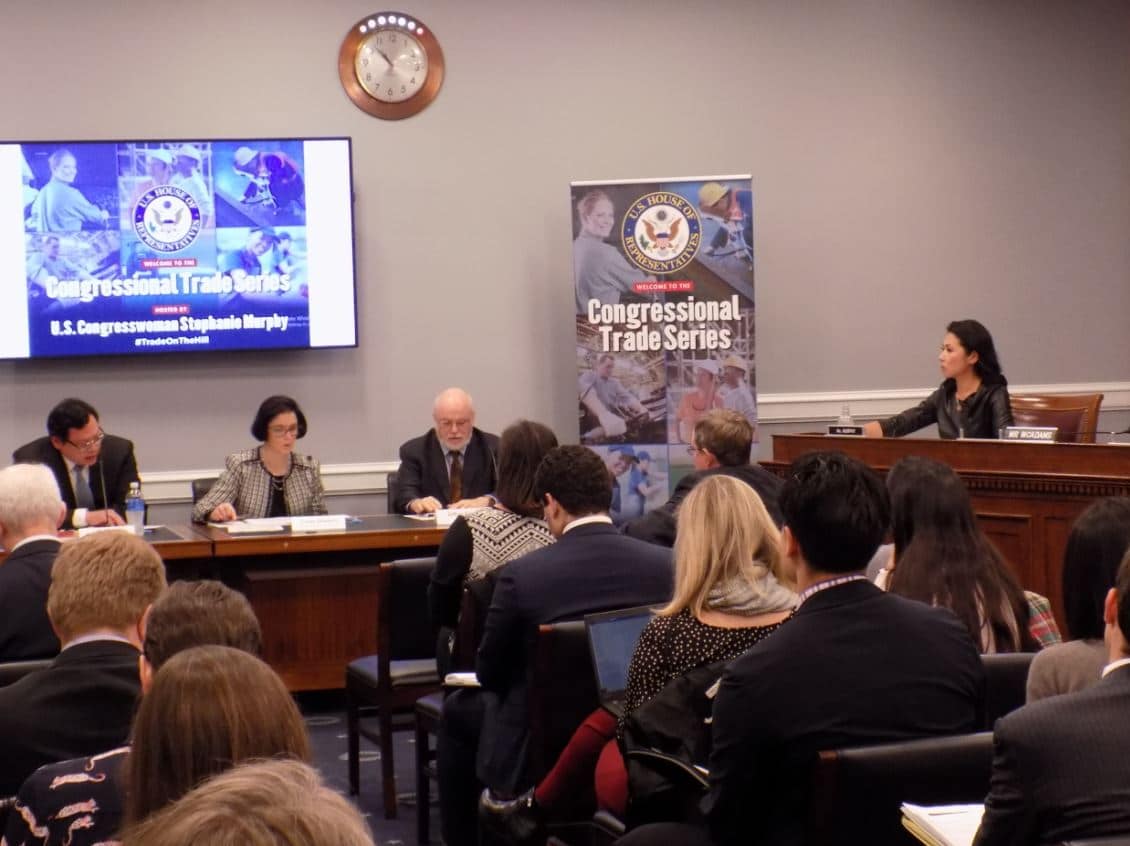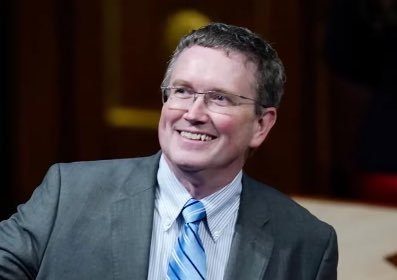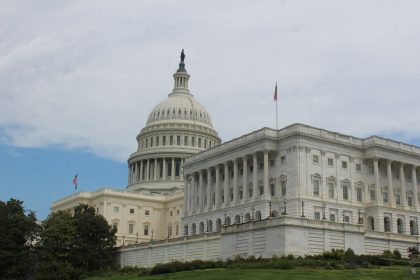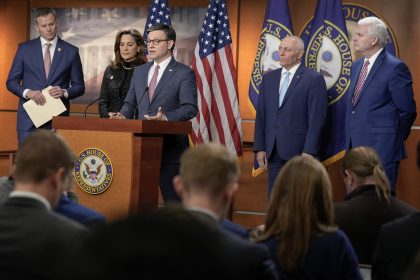Experts Decry End of ‘Fair and Binding’ Trade Rules After US Knee-Caps WTO Court

WASHINGTON — Trade experts told a congressional panel led by Rep. Stephanie Murphy, D-Fla., on Tuesday that the U.S. businesses and manufacturers will suffer if the decades-old rules-based trading system is allowed to fall by the wayside as the Trump administration appears to want.
The hearing coincided Tuesday with the end of the terms of two of the last three judges on the World Trade Organization’s appellate body.
Their departure will deprive the de facto Supreme Court of world trade of its ability to issue rulings.
Although the WTO’s lower court – its dispute settlement body – can continue to hear cases, the losers will have nowhere to appeal their cases.
Tuesday’s expert panel was comprised of Linda Dempsey, vice president of international economic affairs policy at the National Association of Manufacturers; Jennifer Hillman, a senior fellow for trade and international political economy at the Council on Foreign Relations; Stephen Kho, a partner at Akin Gump Strauss Hauer & Feld LLP; and Jeffrey Schott, a senior fellow at the Peterson Institute for International Economics.
While they seemed to agree that the WTO needs some fixes to help it keep pace with the demands of 21st century business, they also said retirement of the two judges is an unprecedented development that will inspire heightened uncertainty at a time when trade relations among many countries are already tense.
Established in 1995, the WTO oversees and administers the rules of the multilateral trading system, which are memorialized in over 60 agreements negotiated by member countries. Nearly 98 percent of global trade occurs among the WTO’s 164 member countries.
The WTO’s appellate court reached its critical juncture Tuesday because the U.S. government, citing a litany of complaints, has been blocking the appointment of new judges to the seven-member body for years.
“We are in a crisis moment for our global trading system,” Rep. Murphy said at the start of the hearing.
The loss of a global trade court of final appeal, Murphy said, is “really dangerous for American businesses.”
Schott said the United States’ displeasure were exacerbated by the reforms of the late 1980s that ushered the current dispute resolution process and the appellate panel itself into being.
They stemmed from the fact that certain key members of the WTO were given the power to block decisions that went against them. One of those members was the U.S., another was the Europe.
“So what happened was you’d have these big disputes arise between entities like the U.S. and Europe and they couldn’t be resolved … and as time wore on, frustration, grew,” Schott said.
“These concerns led to the initiation of new negotiations both to reform the dispute settlement rules and update the WTO rule book, but in both cases, the results have been very limited,” he said.
Where previous administrations blocked the appointment of judges to the appeal panel, these actions were carry out merely to send a signal that the U.S. wanted to accelerate reforms.
“Today, however, the Trump administration is using the same method to take a sledgehammer to the appellate body itself,” Schott said.
“What concerns me is that it will now be harder to get support for new trading rules . I mean, why negotiate new trade rules if the old rules aren’t being enforced,” he added.
Stephen Kho noted that there are now a number of trade issues and barriers in the world that simply did not exist when the WTO was created in 1995.
“And remember, the WTO is a relatively young organization,” he said. ‘All organizations must be reformed every several years in order to remain relevant. The regular tweaks should be made to close loopholes and increase efficiency and ensure effectiveness.
“It’s time for the WTO to return to its roots, which is to negotiate practical trade rules and resolve trade disputes. But there’s certainly no reason to throw the baby out with the bath water,” he said.
Picking up where Kho left off, Linda Dempsey said America’s manufacturing sector has benefitted greatly from the globalization of trade.
While America is home to the world’s most productive manufacturers, the reality is the domestic U.S. market only represents about 10% of global consumption. “Our manufacturers need to have access to the billions of foreign consumers that are out there,” she said. “And many of our manufacturers rely on foreign inputs to help them innovate, become more competitive, and produce more and better paying jobs.”
“Today, American manufacturers export about half of what they produce and employ about 12 million people,” she continued. “In order to preserve and build on that success moving forward, they need fair and binding international trade rules.”
Dempsey said while manufacturers have benefited broadly from the WTO’s ability to reduce global tariffs and bring down trade barriers while enforcing fairer standards, “the reality is the rules-based WTO system has not kept pace.”
“It has not kept pace with industry or technological developments. It has not kept pace with new and pernicious trade distorting practices. And it has also not updated or addressed issues with his own processes to deal with systemic problems,” she said.
Rep. Murphy asked the panel what the demise of the rules-based trading system as represented by the WTO means to individual Americans.
“I think the biggest implication is that what they are now looking at is chaos and uncertainty, and both of those have costs,” Hillman said. “Going forward, I think smaller- and medium-sized enterprises are going to have trouble because one of the thing the WTO provided them was certainty in the form of bedrock principles.”
“Now, in the wake of what’s happened at the WTO, small- and medium-sized businesses are going to be scrambling to figure out the rules governing global trade, and the problem is, no one will be able to tell them because we’re not in a situation where a trading partner can, for whatever reason, decide they’re not going to be bound by your rules.”
“That chaos and uncertainty is going to create a drag on economic growth because nobody wants to make an investment into a realm in which the rules are uncertain and there’s no telling what will happen to that investment,” she said.
Schott suggested if one asked a businessman what he needed from the international trading system, he would say, ‘Just tell me what the rules are.'”
“Whether the rules help them or not, having a sense of certainty about them will allow that businessman to figure out a way to make it work,” he said.
“If you no longer know what the rules are or suspect they are going to change, you start to have to build contingency plans into your overall business strategy,” he continued. “This is what U.S. businesses are facing right now in the U.S.-China conflict. They don’t know what’s happening.
Though Presidents George W. Bush and Barack Obama had their own concerns about the WTO, Trump and his top trade negotiator, Robert Lighthizer, have been especially critical of the organization.
They argue that the trade organization constrains America’s ability to counter unfair trading practices by China and other countries. That position inspired one hearing participant to quip, “The Trump administration seems to be totally unwilling to exist within a system where it could possibly lose.”
Among the disputes now in limbo are seven cases that have been brought against Trump’s decision last year to declare foreign steel and aluminum a threat to U.S. national security and to hit them with import taxes.
Hillman said there was some optimism that WTO members meeting in Geneva this week were approaching consensus on new operating principles for the organization, but those hopes were dashed by the United States’ opposition.
“That says a couple of things to me,” she continued. “There’s no question the United States now has everyone’s attention in Geneva. It has maximum leverage right now to push for changes it wants made to the WTO’s dispute settlement system. But it clearly risks squandering all of that if it does not start engaging in real proposals.
“That’s real problem. Because nobody knows what the United States really wants … and what we’ve witnessed is a long, drawn out process that only got us to the death of the appellate body,” Hillman said.























